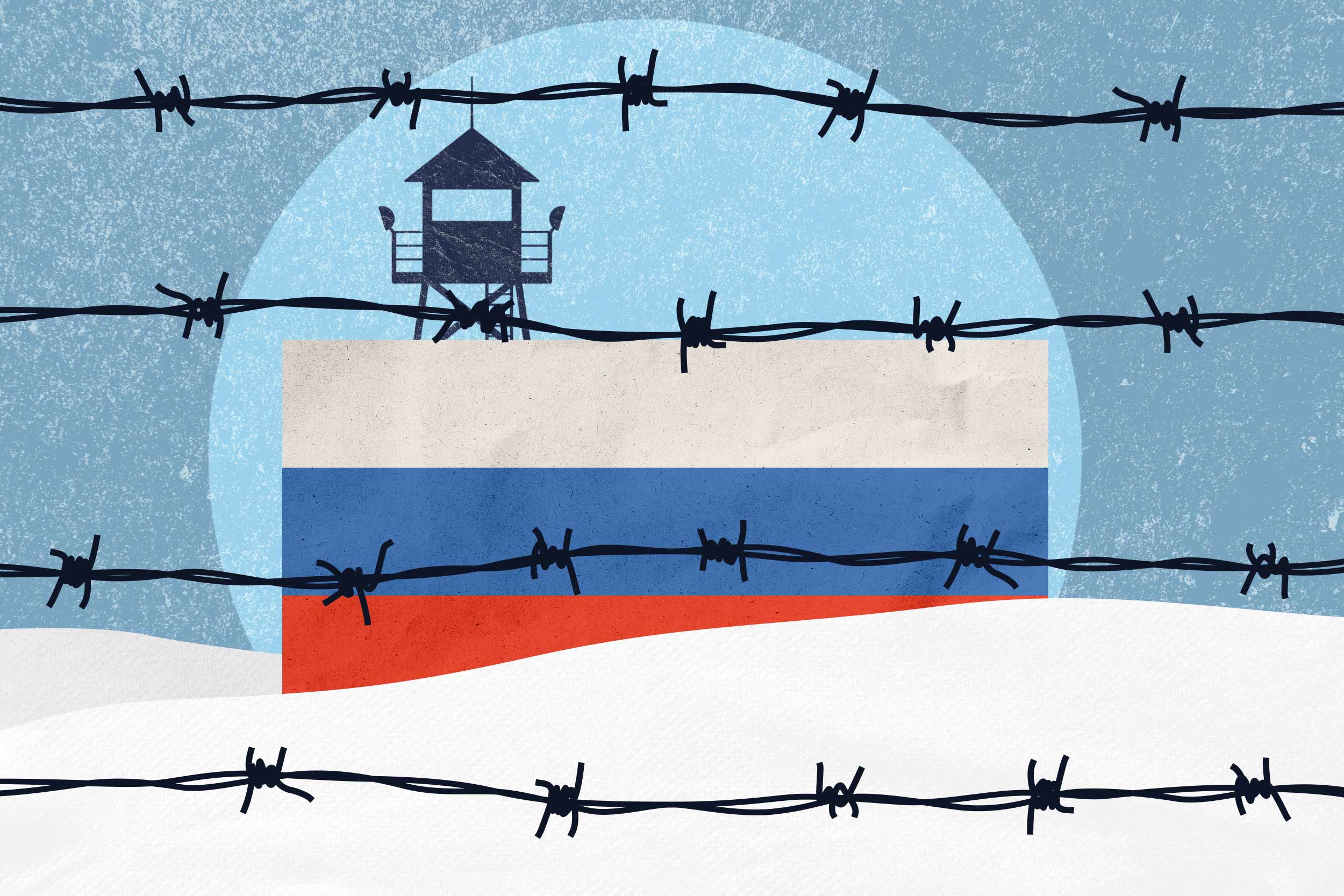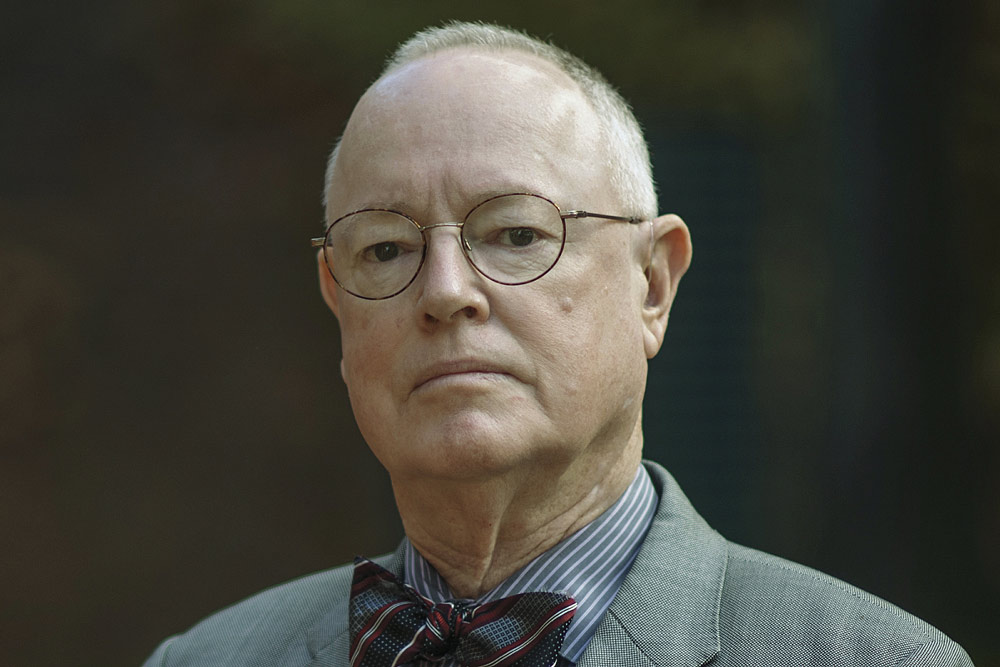He tried to create space for prominent, outspoken critics of the regime. He was a Russian nationalist, rather than someone who wanted the country to be more like the West. He supported Russia’s annexation of Crimea in 2014. But his attacks on the regime became more and more irritating as he became in the West the public face of opposition to Putin. His charges of the regime’s corruption became more troubling, especially because he allied with people who had good technology to provide proof.
In 2020, there was an attempt to poison him. He was rushed out of Siberia to Germany for emergency care. Western doctors saved his life. His supporters unearthed evidence of security service’s complicity. And that was pretty clear.
To the surprise of many, Navalny returned to Russia in a fairly self-conscious decision to embrace martyrdom. He was criminally prosecuted and put in prison. A month or so ago, he was moved to a more severe prison regime near the Arctic Circle, but not a death camp. There were worse things that could have been done to him than the move to the new camp, but it was an increase in rigor.
Now he’s died suddenly. I don’t think it’s in the government’s interest to be seen as murdering him. It bears the moral responsibility, in the sense that government action certainly impaired his health with the poisoning attempt and he’s been held under rigorous conditions. I don’t think we’ll ever fully get behind what happened, but I would be surprised if someone within the Russian government thought there was value to be obtained by manifestly murdering Navalny at this time.
This regime has quite a track record of murdering people. Not at the scale of Stalin, certainly, but we still know that two or three people a year have been deliberately killed by the regime. And when they do it, it tends to be with implausible deniability – that is to say, it’s pretty clear the person was murdered, but there is a thin veneer of deniability over it. Everyone knows we killed this person, but we still insist that we didn’t do it.
The news is still coming in. Under the circumstances, wearing out his heart would not be implausible. The cardiac incidence among Russian men is appalling. I’d say A, I have no idea what actually happened, and B, it’s not nearly as suspicious as some of the other deaths that we’ve seen, and I’m not sure the regime really wanted, at this time, to turn him into a martyr.
What the regime wants to do is send a message out to anyone who might want to resist: We’re going to be very hard on you if you take public, measured steps against us. We have ways of disposing of our adversaries, but it’s done for demonstrative effect. It’s not revenge or score settling, it’s simply to get a message out to the general population.
Q. Does Navalny’s death make Putin weaker or stronger?
A. I don’t think it matters. Since the war in Ukraine started, the state has mobilized a lot of resources to suppress open dissent, [including] criminal prosecutions for fairly modest behavior. It’s very hard to organize a liberal opposition in Russia under these conditions.
Moreover, the liberal opposition in Russia, for the last 30 years, has included many inspiring and very attractive people. But in the Russian electorate, they’ve never really gotten above 3%. There are people who those of us in the West admire. They are the people reporters really liked, because they’re inspiring people, but their actual sway in Russia is only enough to irritate the regime. The regime makes examples out of them, but the liberal opposition of which Navalny was the face would be about fifth down on [the list of] things Putin has to worry about.
Q. From where did Navalny come?
A. I don’t know much about his background. He became what the British would call a barrister in the 1990s. There was a robust private sector. He was active as a courtroom lawyer and involved in the self-governance of the bar and then some civil work. In 2010, he had a fellowship at Yale Law School and he moved to Moscow. His widely publicized attack on the regime’s corruption soon followed.
Q. Is Navalny’s death going to have any lasting impact?
A. I don’t think so. He’s certainly a very visible figure; a lot of people in the West saw him as the face of opposition to Putin. I think this perception will continue for awhile, but I don’t see how it’s a story with a lot of legs, unless there is information that demonstrates a more nefarious story about his end.
I can’t rule out that there really were bad actors here. Bad actors might be caught – in the sense of exposed, not punished. That might move the story along for awhile, but the truth is that the liberal opposition to the Putin regime is pretty small and sad, although, from my perspective, very admirable people.
Q. Is this going to affect whatever exists of Russian public opinion?
A. I don’t think so. I don’t mean to diminish the fact that this young man’s life ended prematurely, having suffered horrible mistreatment on the part of the government. To be outraged about this is entirely appropriate. I don’t mean to be cold-hearted about this at all. I think it can be both outrageous and have no particular political significance within Russia.
Q. Do you see anybody on the horizon as the next Navalny?
A. I really don’t, with the repression around the war [and] a lack of significant and sustained Western media presence, which provided an outlet. I don’t see the conditions for very visible and effective opposition right now. There’s plenty of extremist nationalist resistance to the regime. That’s what the regime is worried about. But I just don’t see the Western-facing liberals being much of a factor. Regrettable, but true.






